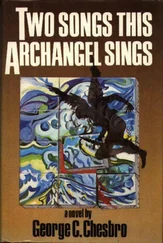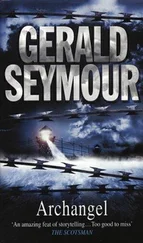Most of what you have so far seems fine to me, coherent and logical, if too heavily weighted toward the history. Too much context, not enough of the actual theory? That might just be my own perspective. Phoebe, I really am not sure about this — but haven’t you fallen into that old trap of trying to make, from the symbols we use to reason about reality, pictures we can view in our minds? You know as well as I do that our ideas about space and time and molecules and matter aren’t anything like the “real” universe, although they parallel it in some way; we make models because they help us think, but what we’re really talking about here are mathematical statements that describe the relationships of phenomena. It’s a mistake to weed out all the mathematics, even when you are trying to explain a theory we already understand to be outmoded. I think you could do this more succinctly. And that you could come down more firmly on the side of what we know now — not what we used to think we knew.
Since when did Owen talk to her like that? As if she were his student; as if she were a colleague’s undereducated, amateurish wife. She stared at her draft, unsure how to make it better. Once she’d been able to write, clearly and even powerfully. Once she’d gone to her desk each day with the unthinking expectation that she would pick up her pen and begin, and that from the very movement of pen across paper a train of thought would develop. Concepts would clarify themselves, sentences would flower into paragraphs; in this one small arena, she could do no wrong. She had lost Michael, she was at a loss with Sam, her parents were a mystery, she had no home of her own — yet on the page she could make an object that was shapely, and orderly, and on occasion helpful to others. She’d counted on this for years, without understanding what it would mean if it disappeared. As she’d counted on the sympathetic ear of a man she apparently no longer knew.
“You’re so flushed,” her mother said, when the heat drove them outside to sit stickily on the chairs they’d pulled into the garden. “Are you feeling all right?”
“I’m fine,” Phoebe told her. “Just tired. It’s been hard to sleep.”
But what kept her from sleeping was not the heat. She tried to squelch the bitter thought that Owen did not, after all, regard her as his equal intellectually. For all her efforts to keep him from viewing her primarily as a woman — efforts that had cost a great deal in other ways — he still condescended to her.
Quickly, almost mechanically, she wrote over the next few days a magazine article about the implications of the red-shifted spectra Vesto Slipher had observed for a handful of spiral nebulae. Then, with her papers drooping moistly over open books, she returned to her chapter, still unfinished, still not right. She tried this:
If the ether exists as some sort of rigid jelly, then all of space is filled by it, everything in space is connected to everything else, a ripple here causes effects inconceivably far away — but space, however tied together, is all one thing, and time is something else. In Einstein’s vision, etherless, space and time are tied together into one four-dimensional continuum, impossible to visualize but perfectly clearly expressed mathematically. Time is variable in that vision; time expands and contracts depending on the position of the observer, and it seems possible that the past, the present, and the future might all exist at once, so that everything we’ve ever done and been might be laid out, accessible .
Michael, she thought. The day they met, the moment their hands first touched, the day they were married, the moment when Sam was conceived. She scratched those lines out thoroughly.

SEPTEMBER CAME AND Sam returned to school, still without Phoebe having completed what had once seemed like a manageable task. She gave up writing to Owen. She shut herself in her room, still far too warm, and she wrote and wrote, crossed out and wrote more. Then she fell sick for three weeks — the strain of working so hard, her worried mother said — and when she could rise from her bed she was more behind than ever. She’d lost weight, her hair was dry, and her periods had vanished; was it already time for that? Perhaps it was just from being sick. She made an effort to eat the meals with which her mother tempted her, and she put the chapter on the ether out of her mind. An acquaintance who taught astronomy at Bryn Mawr asked if she’d be willing to tutor three struggling students; she took them all. At the request of an elderly high school teacher in upstate New York, she also wrote an article detailing useful experiments, requiring little equipment, for youngsters.
She found herself, as the new year came and went, in roughly the same place she’d been when Owen’s letter about the eclipse expeditions had arrived. Another year older, her hair more gray, still at her desk in her parents’ house — except that now she was past the time when she’d promised to send in her book, and Owen had drifted away, and Einstein was hugely famous everywhere. One by one, essays attempting to explain his theory to the non-mathematically trained reader had been published in Scientific American . Across the ocean, Nature devoted an entire issue to the explanation and implications of the principle of relativity. In the library, dutifully at first but then with some excitement, Phoebe read through those articles.
She copied out phrases from the well-known physicists who examined different aspects of Einstein’s theory but in the end agreed that it was right: all except for Sir Oliver Lodge, who declared stoutly that while the theory might appeal by its beauty and weird ingenuity to mathematicians lacking a sense of physical reality, it so oversimplified the properties of matter as to risk impoverishing the rich fullness of our universe into a mental abstraction.
Now that he and his psychic beliefs were safely in England, his recalcitrance seemed almost admirable. That steadfast insistence on common sense and the reality of a physical world in a physical ether: what did it cost him to maintain that position, now so unpopular? One afternoon, reading with her mother and Sam in front of the fire, she asked what Sam remembered of Lodge from the lecture last spring.
“He remembers it very well,” her mother said. “Don’t you?”
Sam nodded without looking up from the huge volume open on his lap.
“What are you reading?” Phoebe asked.
“A biology textbook,” he said, spreading his fingers over the pages. “My teacher loaned it to me, for an extra project.” When her mother said, “Sam?” he added, “I wrote something about Lodge, for an English class.”
“Can I see it?”
He paused, looking down at his book, and then closed it on a pencil and rose. “If you’d like.” He left the room and returned with a few sheets of paper, covered in his meticulous small script.
The essay, which he’d called “My Father, at a Distance,” started not with a memory of Michael but with a description of Sam’s evening at the theater in New York. Here were the rapt women, the box with the thread, the flow of Lodge’s talk as she too remembered it — but these things, for Sam, had been only a beginning. Like her, he’d gone to the library and investigated Lodge’s writings; but unlike her — she hadn’t been able to stand more than a few pages — he’d actually read Lodge’s book about his son, Raymond, who after being killed in the Great War had supposedly made efforts to communicate with his family.
I didn’t expect to be swayed by it, Sam wrote. But I was, although perhaps not in the way Lodge meant. Sam described the letters Raymond had sent from the front, the photographs of him as a boy, the long transcriptions of Lodge’s sittings with mediums after Raymond’s death, the chapters of theory and exposition meant to help a reader interpret what Lodge presented as evidence for Raymond’s continued existence in another form. What this was, Sam argued, was evidence of a different sort: evidence of love. When Lodge wrote, People often feel a notable difficulty in believing in the reality of continued existence. Very likely it is difficult to believe or to realize existence in what is sometimes called “the next world”; but then, when we come to think of it, it is difficult to believe in existence in this world too; it is difficult to believe in existence at all, what he meant was: My existence makes no sense without my son.
Читать дальше













